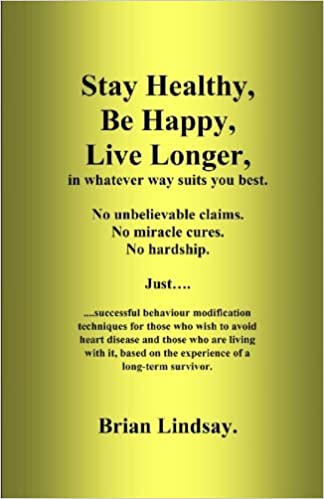
For your health and well-being, a healthy lifestyle can make a difference in the quality and length of your life. Positive lifestyle habits will help you live a healthier life and decrease the chance of getting sick. Healthy weight can be maintained by a balanced diet, regular exercise, proper nutrition, and regular exercise. There are many resources available to help you improve your overall health, including books, brochures, and audio relaxation tapes. Being healthy will make you happier and more productive.
Living healthy is all about eating well. The program's emphasis on high-quality foods that are rich in nutrients will help you maintain a healthy lifestyle throughout your life. This program is different from conventional treatments. It will address your whole person and address any external factors that could contribute to disease. You can make positive changes to your health and lower your risk for chronic diseases by focusing your attention on these important areas.

Healthy living starts with small changes like increasing your daily steps, eating more fruits, and drinking more water. Start small by not eating the second serving of potatoes. Start small and gradually work your way to a healthier lifestyle. Even if you don't feel motivated to change your routine, you can still improve your daily life by adopting new healthy habits. It is better to start small and build up over time.
A healthy lifestyle is important for the long-term health of your mind and body. Studies show that a healthy lifestyle is associated with a lower risk of certain illnesses, such as diabetes and heart disease. A healthy lifestyle can also help improve family relationships. People who lead a healthy lifestyle live longer. The benefits of a healthy lifestyle are many. You'll be healthier and happier for it. You'll be able wear your favorite jeans again without feeling ill or unfit.
To live a healthy lifestyle, eat more fruits & vegetables. According to the World Health Organization, healthy is defined as those who eat more fruits and vegetables than others. The World Health Organization further defines lifestyle as a combination or values, attitudes, and environments. Making wise decisions is key to living a healthy lifestyle. A balanced lifestyle is an important component of a well-balanced life. For this, you must include enough vegetables in your daily diet.

Living a healthy lifestyle means eating foods and activities that promote brain growth. This will make you more fit and decrease your chances of getting diabetes. It will improve your sleep quality. Eating healthy foods will make it easier to live well. Living a healthy lifestyle can help you maintain a healthy weight and give you more energy. It will also prolong your life. But emotional health is equally important. If you have high stress levels, you're more likely to smoke, drink alcohol, and argue with others. You should also practice yoga and meditate.
FAQ
What's a good routine for a daily workout?
To stay fit, you need to exercise regularly. It doesn't matter what type of fitness activity you choose as long as you do it regularly. Consistency is key. For you to get results, you have to stick with it for a longer period of time.
Begin with a small amount of daily exercise (like walking). Increase the time you spend exercising each day until you can do 30 minutes. This could be running, biking, swimming or weight training.
Try to get active every day. Don't skip any sessions unless you have a valid reason for not attending.
You should wear the appropriate clothing and footwear if you are exercising outdoors. Weather conditions can also affect your ability and safety to exercise.
When you exercise, drink plenty of fluids. Avoid drinking alcohol during this time because it can cause dehydration. Caffeinated beverages such as tea, coffee, and cola should be avoided. They can provide energy, but they also dehydrate.
When you first start exercising, you might feel tired after completing your workouts. Keep going with your workouts and you'll soon feel more energized.
Which dietary supplements are good for weight loss.
Exercise and diet are key to losing weight. Some people find that certain supplementation can be helpful.
Some studies suggest that omega-3 fatty acids may help with weight loss. Omega-3s are essential fats which are crucial for brain function. They're found in seafood like salmon, tuna, shrimp, and cod liver oil.
Other research suggests that green tea might be beneficial for weight loss. Green tea has catechins, which are antioxidants that can help increase metabolic rate and encourage weight reduction.
Eggs are good for us.
All nutrients are contained in the egg. It also helps maintain strong bones, a healthy heart and lungs, and stable blood pressure.
Eggs are a good source of protein and vitamins A, B12, D, E K, calcium, phosphorus iron, zinc copper, magnesium selenium and even riboflavin.
Egg yolks are high in cholesterol. However, it doesn't contain saturated fat. Eggs contain less saturated fat than most other foods.
They are also low-calorie and high in sodium. Because they can be cooked in almost any way that you wish, they are versatile. They can be poached or scrambled, baked, hard-boiled, or fried.
They are extremely nutritious and simple to prepare.
At least two whole eggs should be consumed each day. You can add eggs to your diet if you don't like eating eggs.
Essential nutrients are found in eggs. Include eggs in your daily diet.
Cardio Exercise: Good or Bad for Your Health?
Cardiovascular exercise offers many benefits. Cardiovascular exercise improves blood circulation and strengthens your heart muscle. It also increases stamina and helps you lose weight.
Cardiovascular exercise includes running, biking, hiking, swimming, tennis, basketball, soccer, volleyball, football, etc.
Cardio exercises should not be done at high intensity. This could cause injury.
Cardiovascular exercise should be done only if you feel well.
You should never push yourself beyond your limits. You could injure yourself if you do.
Warm up is the best way to start cardiovascular exercise. Then, gradually build up to higher intensity levels.
Remember, you should always listen to your body. If you feel pain when doing cardiovascular exercise, you should immediately stop.
It is also advisable to rest after a cardiovascular workout. This allows your muscles time to recover.
To lose weight, you should include cardiovascular exercise in your daily routine.
It is the most effective way to burn calories and reduce belly fat.
What is the best 7-day workout program?
A seven-day exercise plan should include cardiovascular training (running/biking/swimming), strength exercises (using weight machines, free weights) and one flexibility/core program (yoga or Pilates). Each activity should be performed at least once each week. The total time for each session should not exceed 45 minutes.
Cardiovascular Exercises: Swimming, Cycling, Running
Your goal is to exercise at least 60 minutes each week. For best results, aim for 75 minutes per week. Cardio exercise can stimulate blood flow and increase muscle growth.
Strength Training
While cardio exercises target the heart and lungs, strength training targets the muscles and bones. Strength training can help you burn calories even when you're not working out.
Flexibility & Core Workouts
Your whole body will be stronger if you have flexibility and core training. Both yoga and Pilates can be great choices.
Statistics
- Get free shipping and 25% off today. (healthline.com)
- 10 pounds in a month is likely during a lean bulking phase, especially for beginners. (muscleandstrength.com)
- An estimated calorie range for moderately active adult males falls between 2,200 to 2,800 calories per day, depending on age. (eatright.org)
- According to the American Heart Association, blood pressure should be checked at least once every two years, beginning at age 20. (my.clevelandclinic.org)
- According to the American Academy of Dermatology (AAD), men over 50 are at a heightened risk of developing it. (healthline.com)
External Links
How To
How do I lose weight while working out?
Exercise burns calories through increased metabolism and oxygen consumption.
You'll lose weight safely if you exercise at moderate intensity.
These tips will help you burn fat and keep fit while exercising.
-
Cardio exercises include walking, running, swimming, cycling, running and jogging.
-
Three times per week, exercise for 30 minutes.
-
Add strength training to your workouts if you are looking to lose more weight.
-
Avoid intense training. You can build muscle without breaking down muscle tissue.
-
When exercising, make sure to drink lots of water. Water is essential for flushing out toxins and keeping your body hydrated.
-
After working out, make sure to drink low-fat proteins shakes. Protein shakes are great for your muscles and energy.
-
So you don’t feel hungry, eat smaller meals throughout your day.
-
Don't skip breakfast! Skipping breakfast can lead to fatigue and sluggishness.
-
Take care to your mental well-being. Stressful situations can slow down metabolism.
-
Keep a positive attitude. Research shows that overweight people gain more weight if they believe they are overweight than those who believe they look good.
-
Get enough sleep. It is harder to lose fat if you don't get enough sleep.
-
Keep active. Get up every hour and get moving.
-
Maintain a healthy diet. You will feel fuller longer if you eat right.
-
Find relaxation techniques. Your body won't release stress hormones that cause muscle tissue destruction if you have a tense mind.
A balanced diet contains all necessary nutrients for growth and development.
Six small meals per day is better than three large meals. This gives your body time and energy to process the food.
For strong bones to be maintained, you need approximately 500mg of calcium per day. Calcium can be found as a dairy product such as milk, yogurt and fortified soy drinks, orange juices, cereals, breads, and cereals.
Calcium is found in leafy vegetables, beans and tofu, as well nuts, seeds and cheese.
Vitamin D is required by the body to absorb calcium. Vitamin D can also be found in some fortified foods such as eggs, fish, and yolk.
Vitamin E is essential for skin health. Vitamin E can be found in vegetable oils as well as wheat germ oil, peanuts and almonds.
Your body requires zinc for normal immune function and wound healing. Zinc can be found in seafood, legumes and meats.
Zinc deficiencies can lead to fatigue, decreased appetite, depression, and reduced immunity.
Too much sugar leads to insulin resistance. This results in higher blood glucose levels. Insulin resistance leads to weight gain.
Insulin resistance occurs when the bloodstream is full of free radicals. Free radicals can be molecules with unpaired electrons that cause damage to cell membranes.
Most free radicals come from pesticides herbicides, food additives, preservatives smoking, radiation, chemical in cosmetics, lotions and household cleaning supplies.
Free radicals can lead to cancer and heart disease, diabetes mellitus, arthritis, asthma, and premature aging.
The best way to avoid free radicals is to eat a balanced diet high in antioxidants. Antioxidants protect against oxidative damage.
Vitamin C is found in citrus fruits and beta carotene is found in carrots.
Additional antioxidant nutrients include selenium and copper, manganese and zinc.
Selenium is known to protect cells from the oxidative damage that free radicals can cause. Selenium is found in Brazil nuts, tuna, liver, kidney, shrimp, cod, turkey, beef, lamb, pork, and chicken.
Copper protects eyes, brain, lungs and red cells. Copper can be found in meat, shellfish, meat, and organ meats.
Manganese forms an essential part of bone structure. Manganese can be found in brown rice and spinach as well as bananas, prunes raisins, oatmeal, lentils, and oatmeal.
Zinc is important for healthy growth, reproduction, and wound-healing. Zn is present in lean cuts of meat and white fish, as well as eggs.